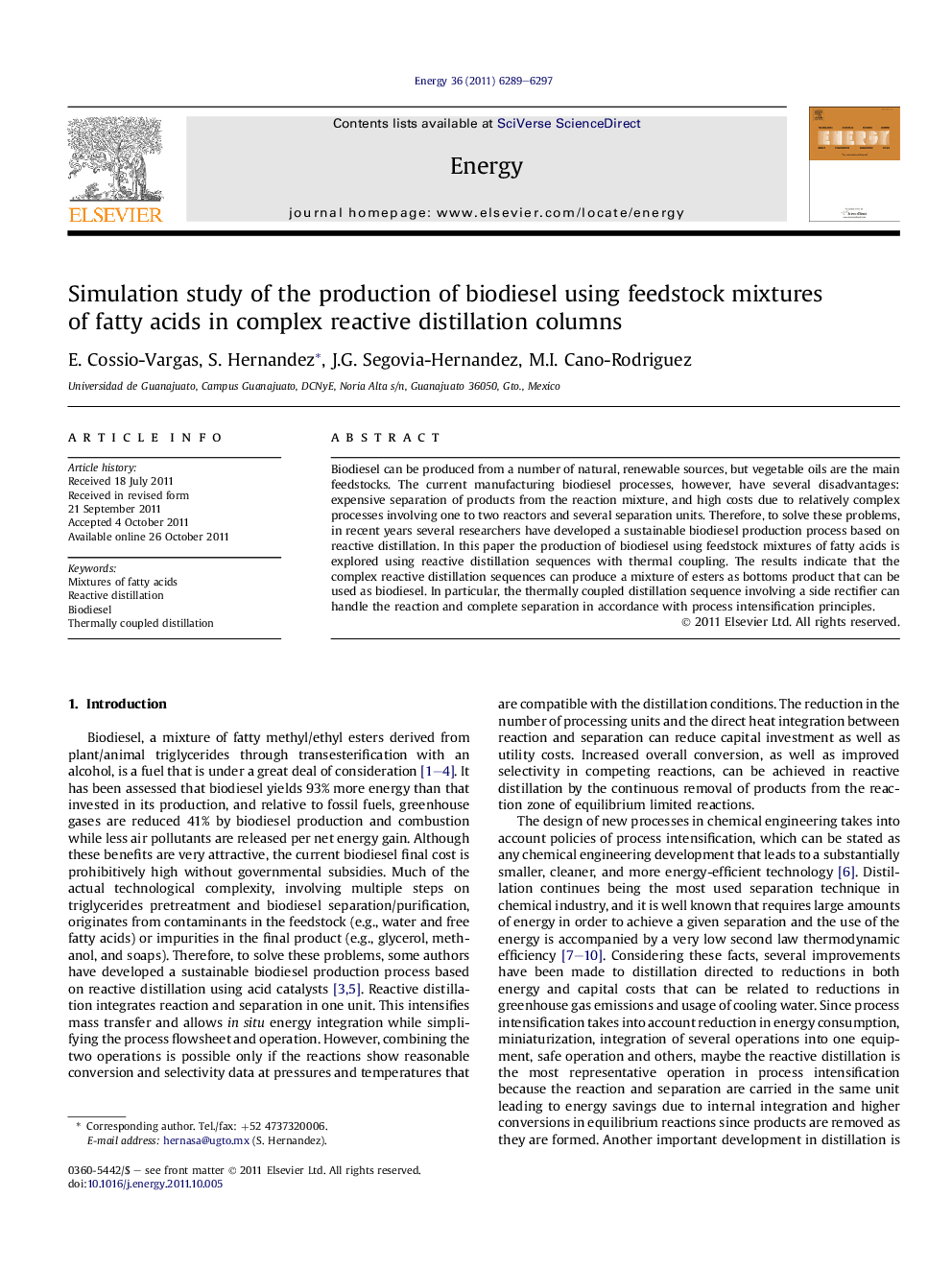| Article ID | Journal | Published Year | Pages | File Type |
|---|---|---|---|---|
| 1734366 | Energy | 2011 | 9 Pages |
Biodiesel can be produced from a number of natural, renewable sources, but vegetable oils are the main feedstocks. The current manufacturing biodiesel processes, however, have several disadvantages: expensive separation of products from the reaction mixture, and high costs due to relatively complex processes involving one to two reactors and several separation units. Therefore, to solve these problems, in recent years several researchers have developed a sustainable biodiesel production process based on reactive distillation. In this paper the production of biodiesel using feedstock mixtures of fatty acids is explored using reactive distillation sequences with thermal coupling. The results indicate that the complex reactive distillation sequences can produce a mixture of esters as bottoms product that can be used as biodiesel. In particular, the thermally coupled distillation sequence involving a side rectifier can handle the reaction and complete separation in accordance with process intensification principles.
► Production of biodiesel using thermally coupled distillation sequences without reboilers. ► Esterification of fatty organic acids using reactive distillation. ► Carnot’s factor in reactive distillation.
